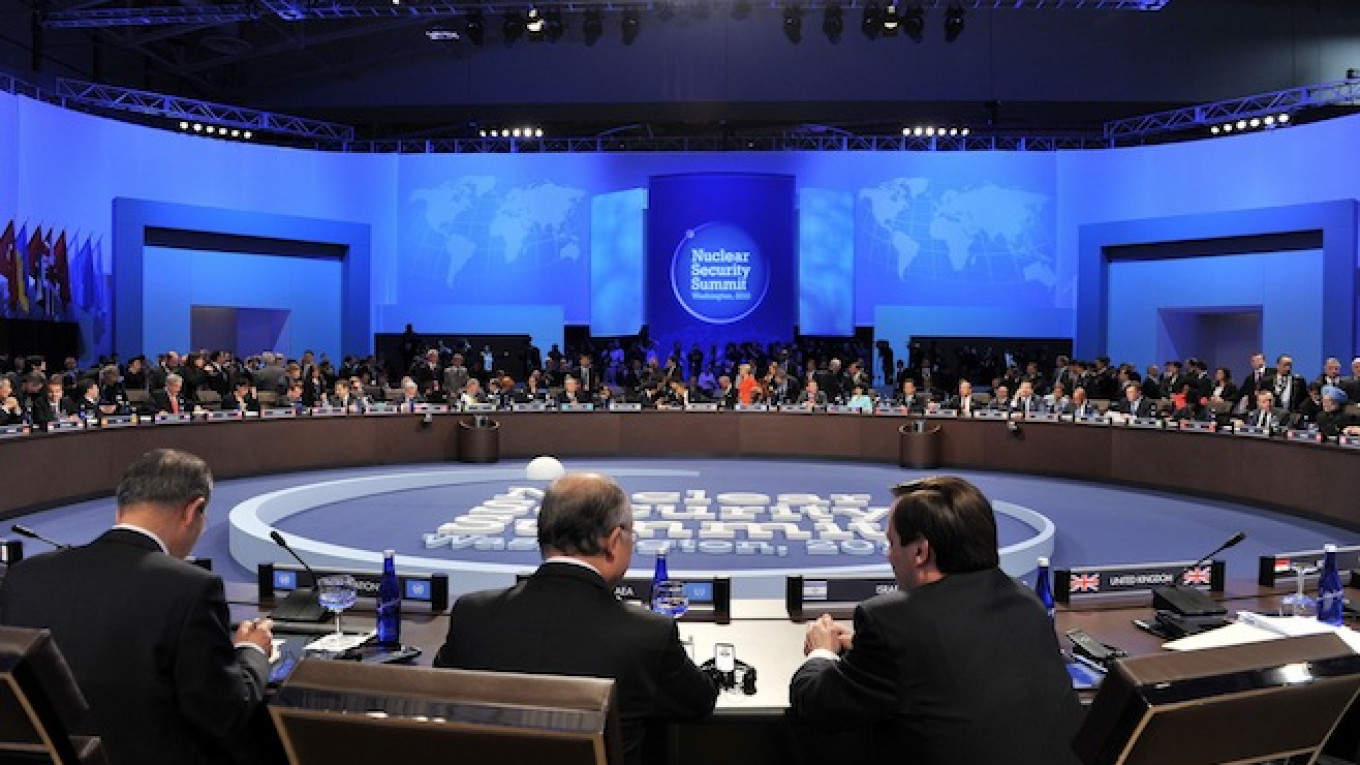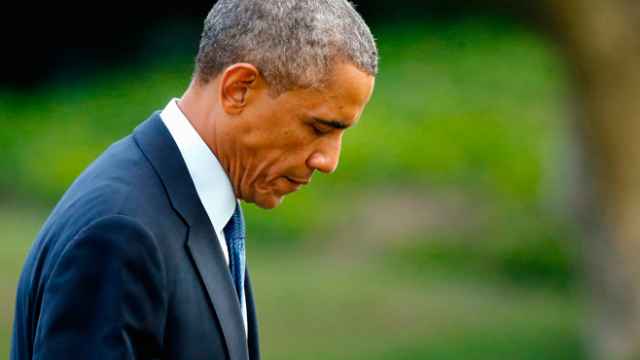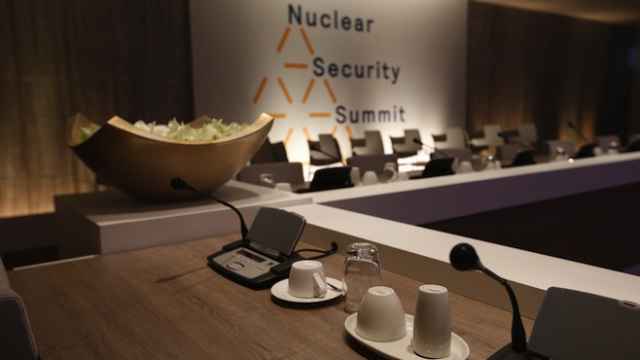VIENNA — Russia has informed the United States that it will boycott the 2016 Nuclear Security Summit, diplomats told The Associated Press on Tuesday, potentially stripping the meeting of one of its key participants and hurting efforts initiated by U.S. President Barack Obama to reduce the threat of nuclear terrorism.
Officials already had told the AP on Monday that Moscow was absent from last week's initial summit planning session in Washington but had left it unclear whether Russia planned to attend the summit itself.
On Tuesday, two diplomats said the boycott applied to the 2016 meeting as well. They cited as their source a diplomatic note from Moscow to the U.S. and other nations planning to participate. The diplomats spoke on condition of anonymity because they are not allowed to discuss confidential information.
One of the diplomats said the note expressed opposition to the summit because of its alleged political nature. He cited the note as saying that any meeting on nuclear security should be on a technical level and convened not by a nation but by the UN's International Atomic Energy Agency.
Russia has participated in such summits in the past. But the diplomat, who is familiar with Moscow's stance, said it already had reservations while attending the last meeting in March at The Hague. He did not specify but added that the "changed political atmosphere" — shorthand for U.S.-Russian tensions over Ukraine — added to the Kremlin's decision to stay away.
In Moscow, Russian Foreign Ministry officials did not immediately respond to a request for comment.
Gary Samore, who advised Obama on nonproliferation until last year, said the Russian decision showed that "nuclear security has become a victim of geopolitics."
But Samore, who is now with Harvard's Belfer Center, said Russia might change its mind by 2016, assuming that "a political settlement in Ukraine can be achieved."
At the last summit, 35 countries discussed turning international guidelines on nuclear security into national laws and opening their procedures for protecting nuclear installations to independent scrutiny. The summit also featured new reduction commitments, with Japan, Italy and Belgium agreeing to cut their stocks of highly enriched uranium and plutonium.
But Russian reluctance to go along with the U.S.-backed initiative was already apparent. Moscow refused to back such a 35-nation agreement, as did China, India and Pakistan. All four of those nations have nuclear weapons.
The summits were initiated by Obama in 2010 and are aimed at preventing terrorists from getting their hands on weapons-grade nuclear material. Since the first summit, the number of countries that have enough material to build a nuclear weapon has fallen from 39 to 25.
Outlining his vision in a keynote speech five years ago, Obama announced a new effort to secure sensitive nuclear material within four years and to cripple black-market trade.
Russia's presence is important both as a world power and a nation with one of the world's largest nuclear stockpiles. Its absence would clearly encourage other nations skeptical of the U.S. initiative to resist more international oversight of their nuclear facilities, while emboldening other nations contemplating staying away.
Such a move would also be the latest sign of strains in U.S.-Russian relations, caused by Washington's criticism of Russian-backed separatists fighting in Ukraine and the imposition of U.S. economic sanctions against Russia.
White House press secretary Josh Earnest said Tuesday that he was aware that Russia had declined to participate in the planning meeting last week, but did not confirm Russia's pullout from the 2016 summit.
"The United States regrets Russia's decision not to participate in last week's preparatory meeting for the 2016 Nuclear Security Summit," Earnest said. "As far as the United States is concerned, the door remains open to Russia joining future meetings like this."
"We'd hope that Russia still shares the view that securing loose nuclear materials and combatting the threat of nuclear terrorism remains a priority well worth the personal attention of world leaders."
The officials who spoke Monday said that apart from Russia, all 54 countries that participated in the March summit attended the preparatory meeting in Washington.
A Message from The Moscow Times:
Dear readers,
We are facing unprecedented challenges. Russia's Prosecutor General's Office has designated The Moscow Times as an "undesirable" organization, criminalizing our work and putting our staff at risk of prosecution. This follows our earlier unjust labeling as a "foreign agent."
These actions are direct attempts to silence independent journalism in Russia. The authorities claim our work "discredits the decisions of the Russian leadership." We see things differently: we strive to provide accurate, unbiased reporting on Russia.
We, the journalists of The Moscow Times, refuse to be silenced. But to continue our work, we need your help.
Your support, no matter how small, makes a world of difference. If you can, please support us monthly starting from just $2. It's quick to set up, and every contribution makes a significant impact.
By supporting The Moscow Times, you're defending open, independent journalism in the face of repression. Thank you for standing with us.
Remind me later.






